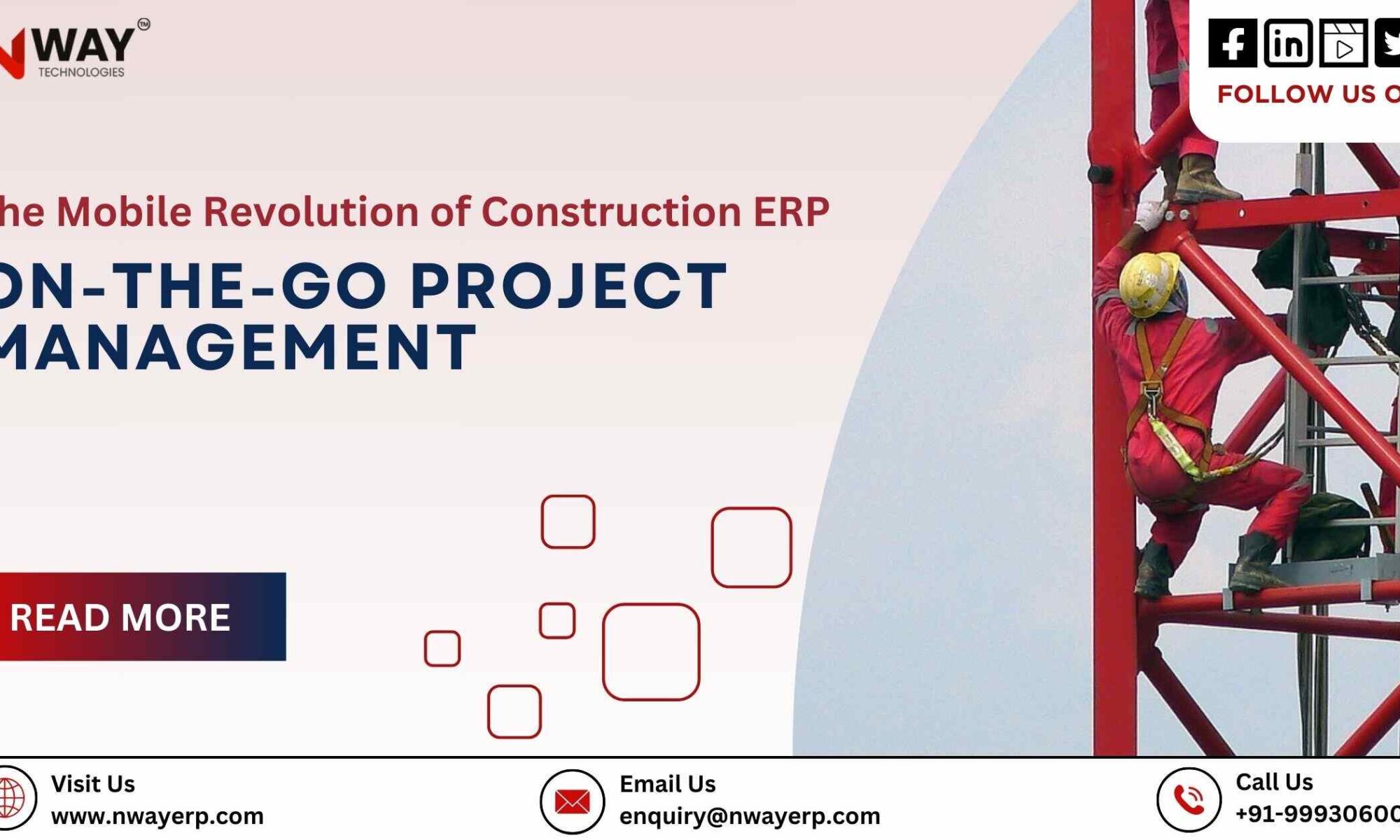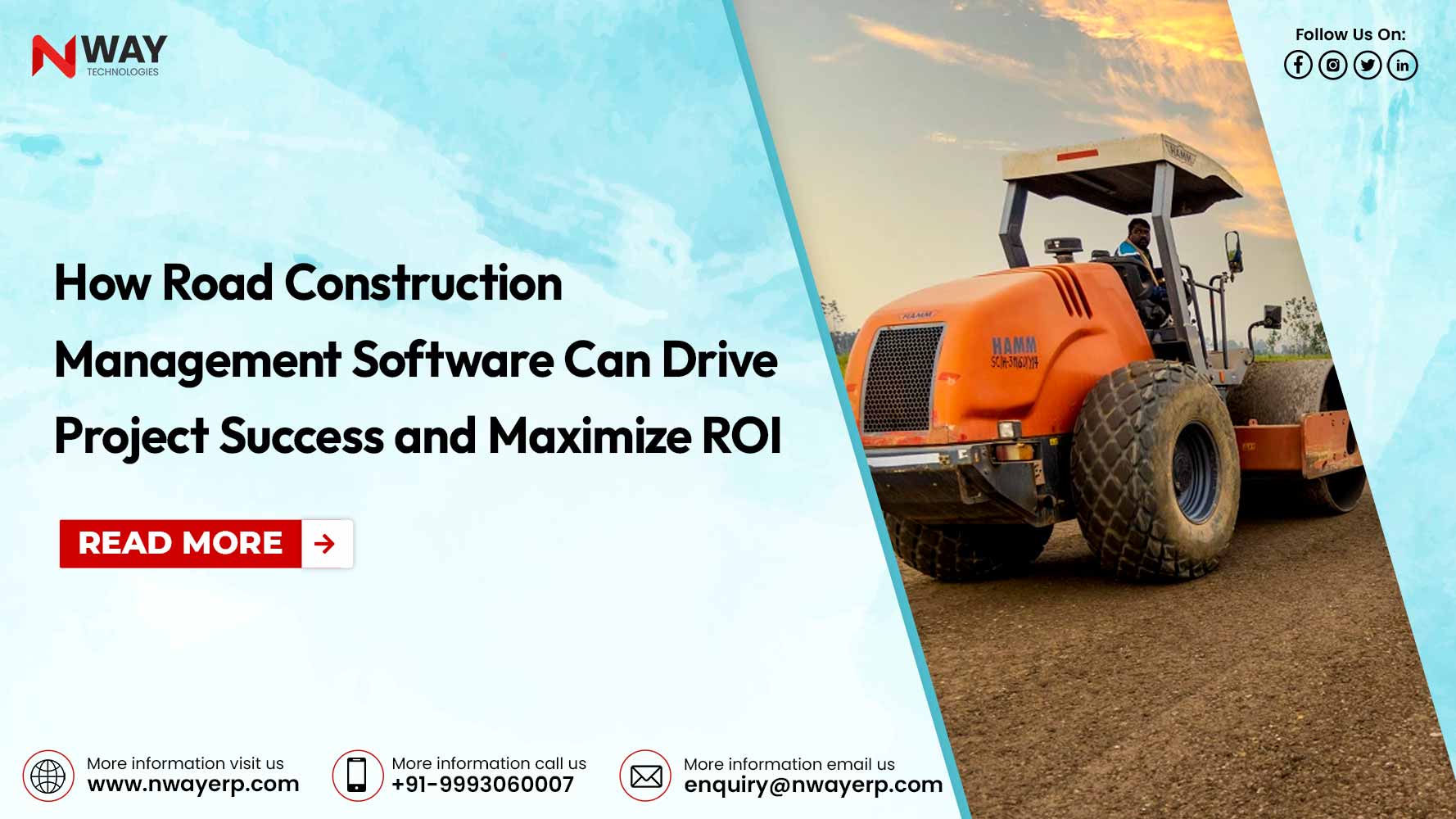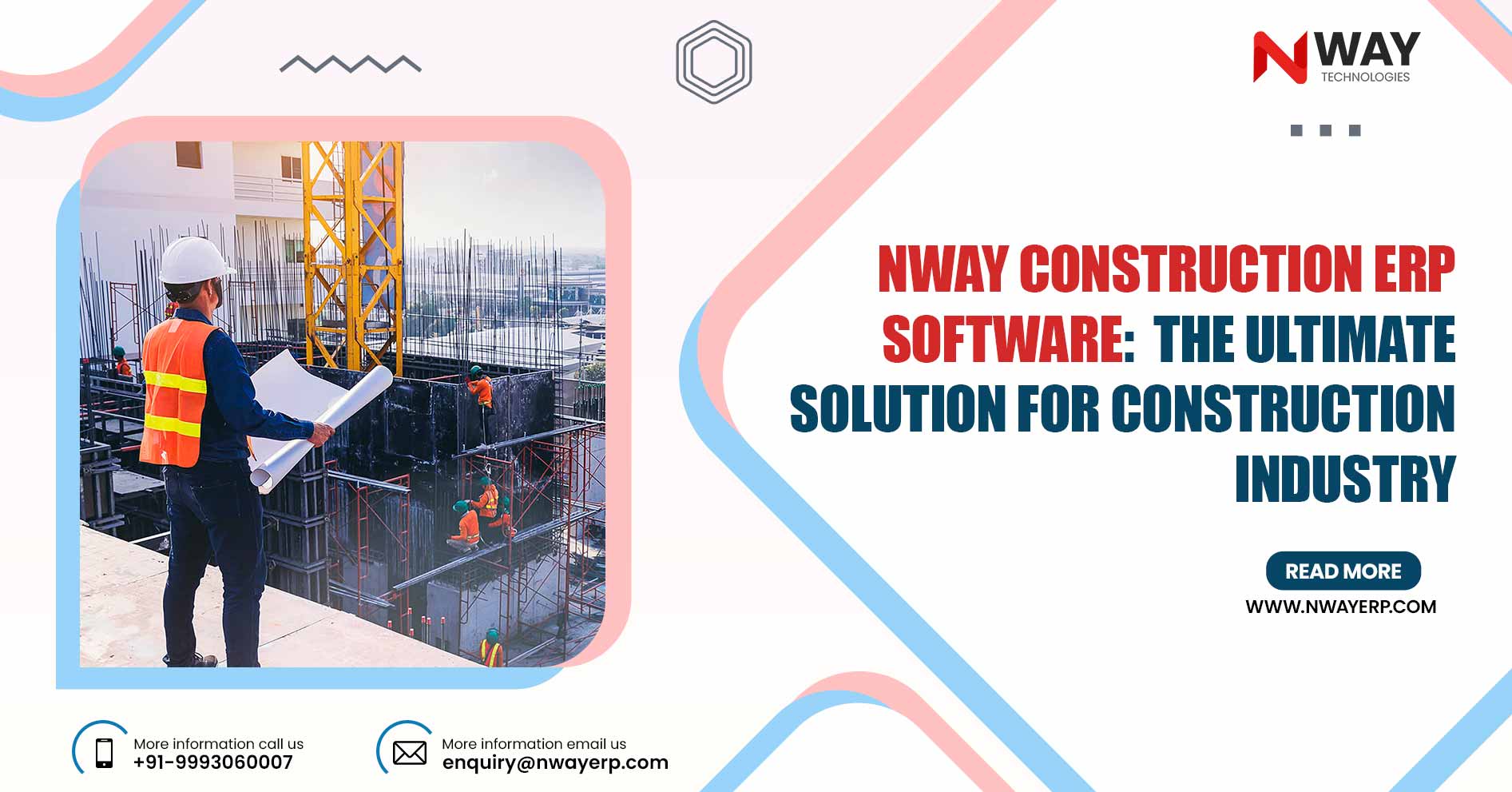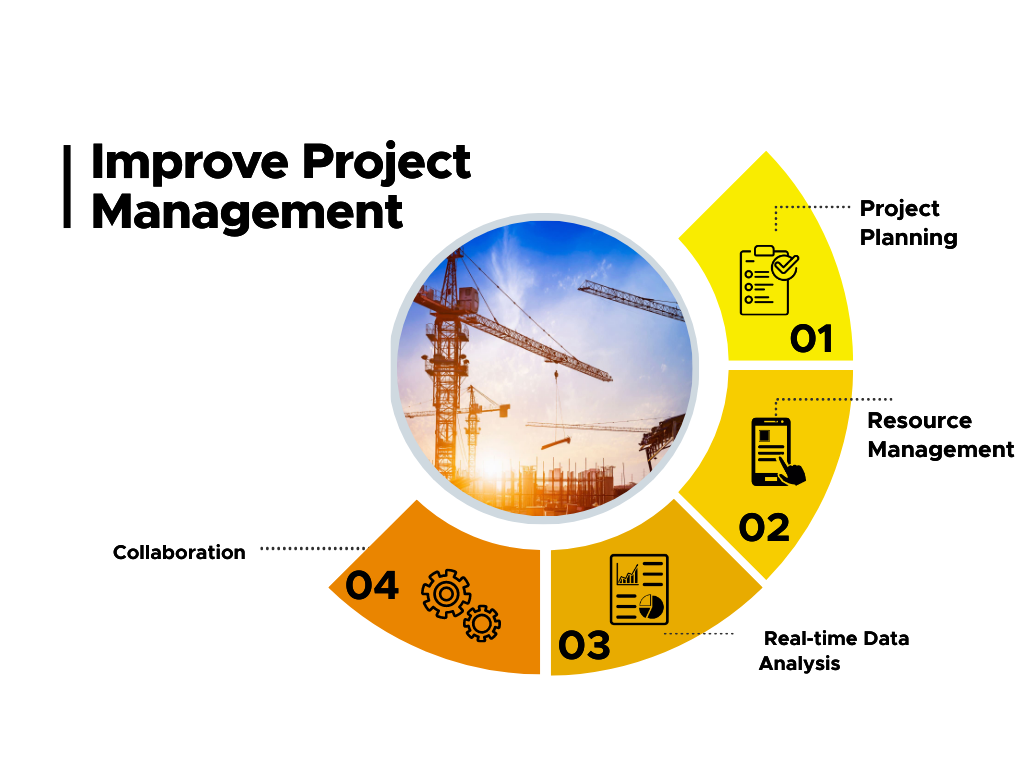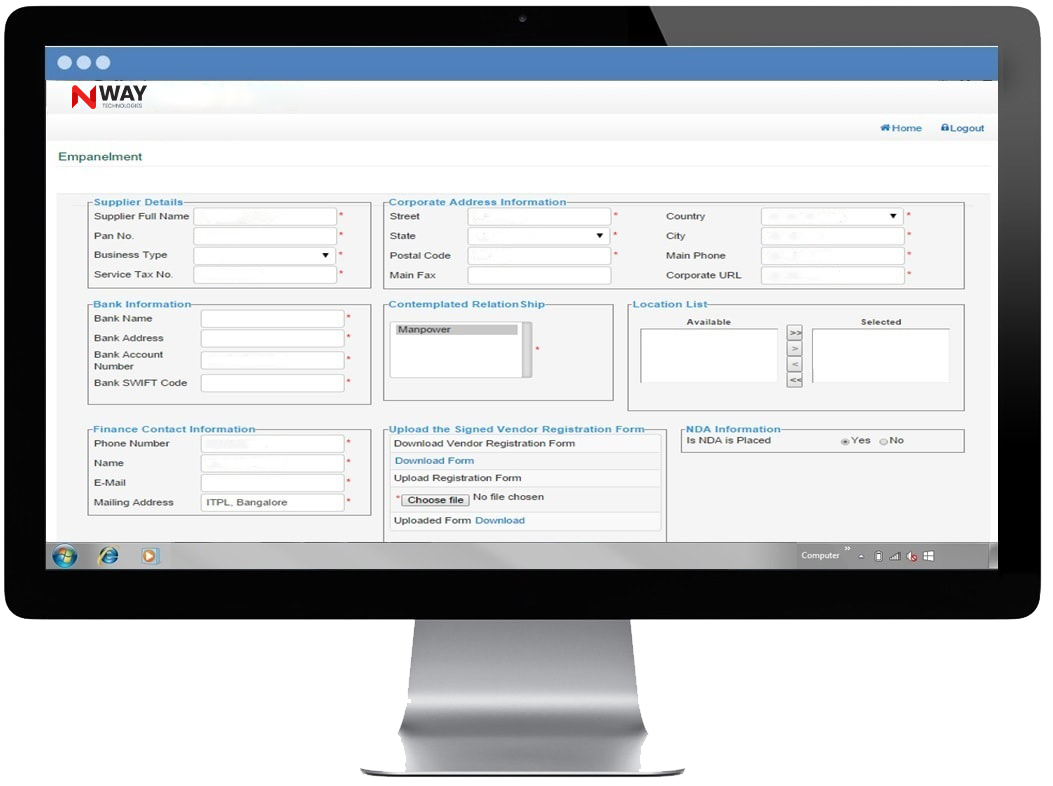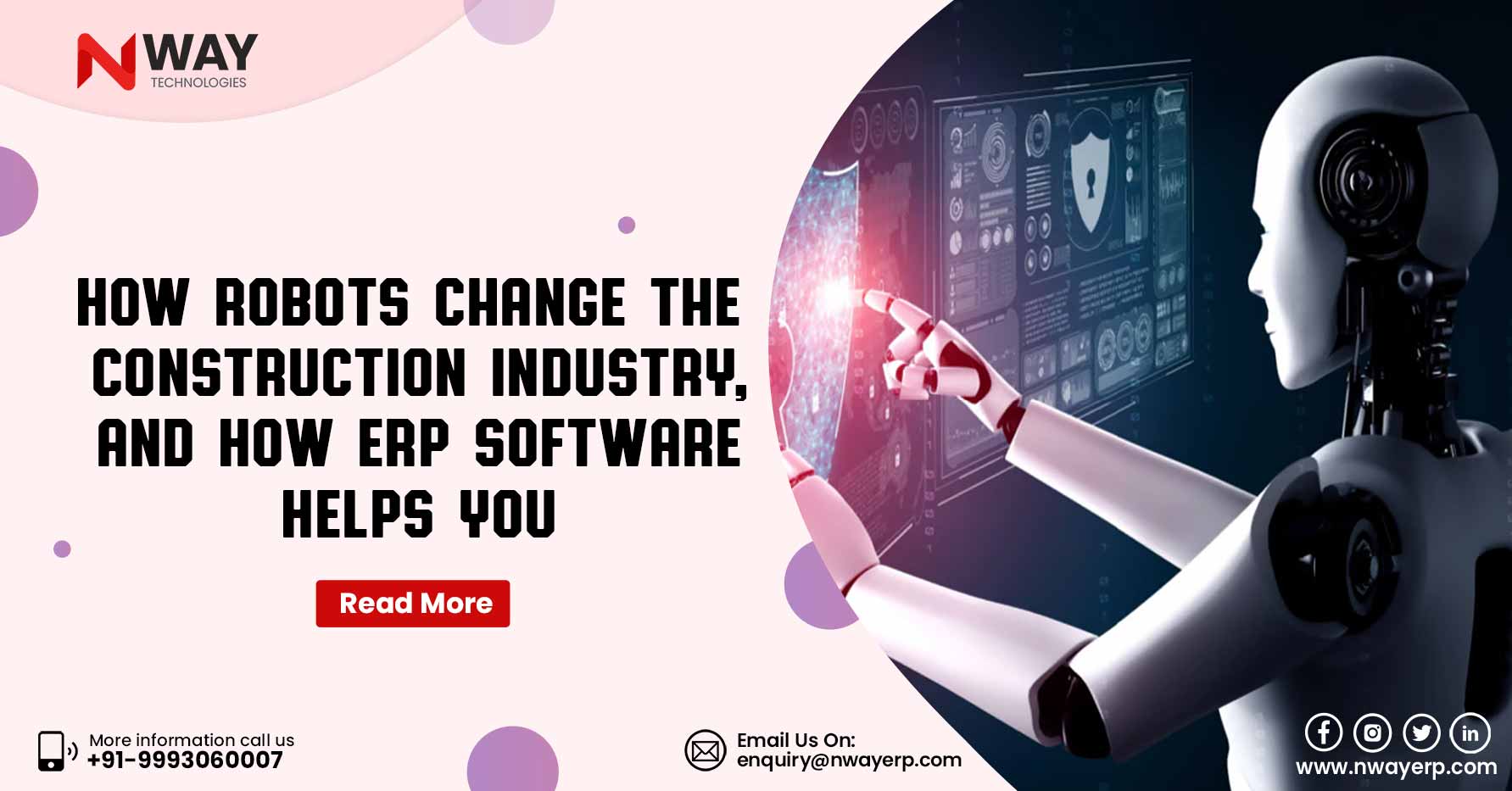Construction is a complicated and growing sector that needs efficient management in order to be profitable. Installing an ERP system for the construction industry can help streamline and control the many business processes that are essential to a successful operation which will result in increased levels of customer loyalty and satisfaction as well as higher net profit as well as better financial performance metrics.
The ERP software will substantially increase margins of gross profits for companies working in the construction industry. A team effort of managers, owners, and the regulators along with the use of an ERP is essential to ensure continued success for the construction business.
What Exactly is Construction ERP Software?
ERP, also known as Enterprise Resource Planning, is an array of technology and tools used to control and improve the fundamental procedures of any company. The processes could include managing projects, accounting and supply chain operations. They also include corporate efficiency management, purchasing and conformity.
For more precise information gathering, a construction ERP software development system unifies all of your shared data into a single, centralized source. This reduces the risk of duplicate or inaccurate documents being made. Furthermore, these software platforms are on-premise as well in the cloud as ERP programs, making them a viable alternative for firms working in the construction sector.
Construction firms require fast update and planning of their work tasks to allow for quick processing scenarios for their customers. Construction industries ERP software solutions are vital for construction companies of the present to streamline their processes as they collect and arrange data, analyze it swiftly and then distribute it to employees in the company who require it.
Problems in Construction Without ERP Solutions
With the advancement of technology and innovations taking place, many companies within the construction sector have found ways to tackle typical challenges. This includes but is not restricted to:
Inappropriate Plan
The construction industry could suffer substantial losses because of poor scheduling. Due to delays in project conclusion, firms may need assistance in reducing labor costs as well as customer losses and poor brand image.
The cash flow can be affected as well as cause labor inefficiencies and contract issues throughout the entire project. The need for effective steps is in order to stay clear of further issues and ensure that the proper plan is implemented in every construction location.
Management of Multiple Clients
Construction industry, controlling and moving information inside the business is a challenge when businesses provide multiple customers at the same time. Manual processes often cause problems that lead to delays and inaccuracy. Producing PowerPoint presentations or Excel Spreadsheets can be a difficult process if the data has to be gathered from multiple sources. Also, it is risky as unauthorized personnel can gain access to confidential details.
In the absence of a cloud backup to these files, it is at risk of becoming permanently lost. Additionally, data that is managed manually is not able to provide instant updates, which makes the process complicated. To overcome this issue, the use of ERP software should be incorporated for companies operating in the construction sector.
Poor Communication
Construction industry specialists from a variety of fields must cooperate to accomplish projects according to the schedule promised to customers. However, important tasks could be overlooked because of insufficient collaboration between teams and departments and can only be discovered way too late.
An ERP program will guarantee efficient communication takes place even if meeting in person is not possible. These systems make all parties aware of the other’s contributions as well as any possible problems. Thus, the implementation of an efficient ERP system is essential for successful construction projects.
Unrealistic Expectations, Poor Forecasting, and Incorrect Estimates
In this highly competitive and intricate business, the viability of a construction venture is contingent on the accuracy of bids and estimates for the cost. Human errors or outdated information can result in issues in precision. If the expectations of clients are properly managed, the satisfaction of customers will increase and could delay or even hinder the finalization of the project.
To be able to keep tight budgets and deadlines that are accelerating, it’s essential for companies that work in construction industries to study requests from clients and others before offering any commitments.
In order to handle the situation effectively, It is essential to break down objectives into weekly, monthly, and daily objectives to determine if they’re feasible. When you’ve gotten a better understanding of the targets, communications with customers and other stakeholders must be carried out appropriately. After that, you’ll be able to create the most appropriate strategy for them, which includes realistic and realistic targets to meet deadlines or budget. ERP tools can allow you to accomplish this better If they are implemented into the plan.
Make Inefficient Choices
Construction projects are extremely complicated and require multiple parties and deadlines; sites and teams need to be managed and coordinated for the achievement of the end target. Achieving this requires quick actions that often have been made without having access to data in real time or information that is up-to-date.
In addition, manual processes of decision-making can be prone to human error or duplicated data, as well as others that can lead to an inefficient process. It creates a huge issue for organizations working in a highly competitive market.
With these elements, making fast, exact decisions based on real-time information as well as a sane process is vital to keeping projects on schedule with no interruptions or expenses that exceed budget.
Benefits and Use Cases for ERP Implementation in the Construction Industry
Construction ERP software solutions specifically designed for the industry of construction can provide enterprises with solutions that deal with the various aspects of a construction project. This can include centralized information such as scheduling, cost management, inventory management, ERP, HR, and payroll administration, bid/tender management, and monitoring productivity.
When implementing an efficient ERP solution in their system, firms in this field benefit from more efficient workflows, precise document reporting as well as purchase order acquisition as well and other benefits. Users of ERP are likely to see an improvement in efficiency in workflows and better relations with customers.
Automated Operations
Companies in the construction industry typically have several activities at one time spread over several locations. Operations vary from managing projects to client handling, cost estimation, administration of staff, and so on. The size of the business and the individual tasks could become quite large and difficult to control by hand.
Incorporating an ERP system is an excellent option to ensure the accuracy of the tasks that are performed and also allow more time for strategically important tasks like design, marketing research, development, and design. It offers many advantages that allow businesses to increase the results they achieve with a minimum of resources spent on manual tasks.
Project Management Optimization
Construction management ERP software solution is vital to ensure the success of project management in the field of construction. Implementation of the system helps companies maximize their effectiveness, improve the projects they undertake, and allocate the right resources to increase the profit margins of their businesses and cut costs. In addition, by implementing a proper approach to planning and management of projects, businesses are able to avoid losses in the long run because of costly mistakes or delays in delivery.
Effective Internal Communication
There needs to be more communication between departments within the organization to avoid delayed deadlines and, ultimately, projects failing. An ERP solution could solve the problem by offering options like chat forums, video interactions, and calendars that are connected, as well as others. Projects in teams can gain a lot from these programs since each member can interact at the same time. This means that the time it takes to resolve a problem will no longer cause problems for your team.
Mobile Responsive
The flexibility of the latest ERP systems has dramatically improved the efficiency and productivity of construction firms. The ability to access powerful project data and other data available on mobile devices can speed the overall process, avoid errors or delays through instantaneous updates, and encourage more fluid processes. The easy access to ERP for construction firms through mobile devices offers a wealth of advantages to businesses.
Enhances Marketing Strategies
A well-thought-out, efficient marketing strategy starts by implementing ERP within the construction industry. The ERP provides information-driven insight into all aspects of the business, like business and financial KPIs. The analysis of data helps you to design a more efficient marketing strategy that includes branding, sustainable projects, marketing campaigns via email, CTAs, and more. By combining the best mixture of techniques that are based on a thorough investigation of the business’s operation, the chances of achieving the desired objectives and goals significantly rise.
Estimated Cost of Construction and Revenue
In the process of negotiating for work within the construction industry, contractors rely on the estimation of costs to win the tender. The use of an ERP for construction is crucial because it allows prescriptive analytics on a range of factors, like prices and resources. A construction ERP that AI powers will also reduce the discrepancies between estimates of a project’s actual expenses and also determine estimates of earnings and. overhead costs.
A Building ERP Software Development Should Have These Essential Elements
In order for the ERP system to succeed for construction companies, it should include cost projections as well as over-runs, as well as manage the entire life cycle of the project from the moment of bid until handover. If you are choosing an ERP solution specifically designed for the construction industry, be sure to look at these features:
Integration Estimation
For the success of any construction project, it’s important to control expectations around timeframe, budget, and specifications for quality. To prevent delays, cost overruns, and other challenges that can affect profitability, it is essential to efficiently control data and details about the progress of your project.
If you are dealing with customers, precise estimates are essential to manage their expectations. Utilizing the construction ERP tools that offer thorough analysis and forecasts using recent data as well as old documents, you will be able to ensure your project’s success by completing the project within budget and all the while making sure your profits are protected.
Advanced Accounting
In the construction business, complete accounting and financial management is required that goes beyond traditional accounting and bookkeeping. This can include but not be only a matter of:
- Management of subcontractors
- Equipment and plant tracking
- Subcontractor and Debtor tracking
- Oversight of operational inventory
- Management of purchase and change orders
- Cost reporting is used to determine the actual cost
In pursuing these goals, the company will be able to leverage efficient and affordable solutions to succeed.
Additional Payroll Operations
When estimating the process, it’s essential to plan time and activities in order to finish the project according to budget and in accordance with the promises. A precise cost-to-benefit ratio vs. budget information and details about personnel is essential for accurate tracking and reporting.
In order to achieve this level of precision To achieve this level of detail, your ERP solutions designed for construction businesses must include a variety of components that include real-time processing of payroll as well as a summary analysis of cost analysis, reports on unit costs, Unit productivity reports direct cost control for labor, multi-project functionality, and revenue and project costs consolidations.
Plant Materials, Equipment, and Plant
The ERP software designed for the construction industry that you pick for your company must possess the ability to handle several projects as well as manage locations, materials, equipment, and materials according to. This is vitally important considering the competitive nature of the market, with very low margins.
maximizing efficiency and profitability will require efficient resource sharing between different locations. This requires an ERP system that includes relevant functions. It is, therefore, essential to ensure that the ERP you choose for the construction sector can track the various components of a building, including fabric tools, in addition to employees’ work.
A Financial Statement that is Comprehensive
The timely and precise reporting of information is essential in the field of construction. A reasonable approach to managing profit and loss isn’t easy because of the complexity involved in a particular model of business. Yet, ERP software for construction systems that are designed specifically for project-based contexts offers exactly the right solution.
Tools like analyzing the utilization of resources, monitoring assets, analyzing the balance sheets, and looking at corporate data can provide useful insights into the performance of your business and the efficiency of operations. This ultimately helps to maximize profits by giving decision-makers useful facts.
Safety & Health Management
The module can be a vital device for employee safety. Companies that are responsible understand the importance it is to keep track of the details of the causes of every incident. When you have the best ERP software for your construction company, You can record the events that occurred on the job with pictures. Additionally, keeping track of the incident details will help you maximize your effectiveness by offering an assessment tool as well as reports. This module lets your company focus on the safety and health of your workers.
Why Choose NWAY Construction ERP Software
Before concluding, let’s look at why NWAY Construction ERP software stands out as the ideal choice for your construction projects.
Advanced Technology
NWAY Construction ERP is built on cutting-edge technology, ensuring that you have access to the latest features and capabilities to enhance your project management.
User-Friendly Interface
With an intuitive and user-friendly interface, NWAY ERP software is easy to implement and use, minimizing the learning curve for your team.
Customization
Every construction project is unique. NWAY Construction ERP software offers high levels of customization to adapt to the specific requirements of your projects.
Superior Support
NWAY offers dedicated customer support to assist you every step of the way, ensuring that you make the most of the software’s capabilities.
Conclusion
Construction ERP software is not merely a luxury but a necessity for modern construction projects. Its ability to streamline operations, improve project management, and enhance decision-making makes it an indispensable tool in today’s competitive construction industry. When it comes to choosing the right ERP solution, NWAY Construction ERP software is your trusted partner for achieving excellence in construction project management.


